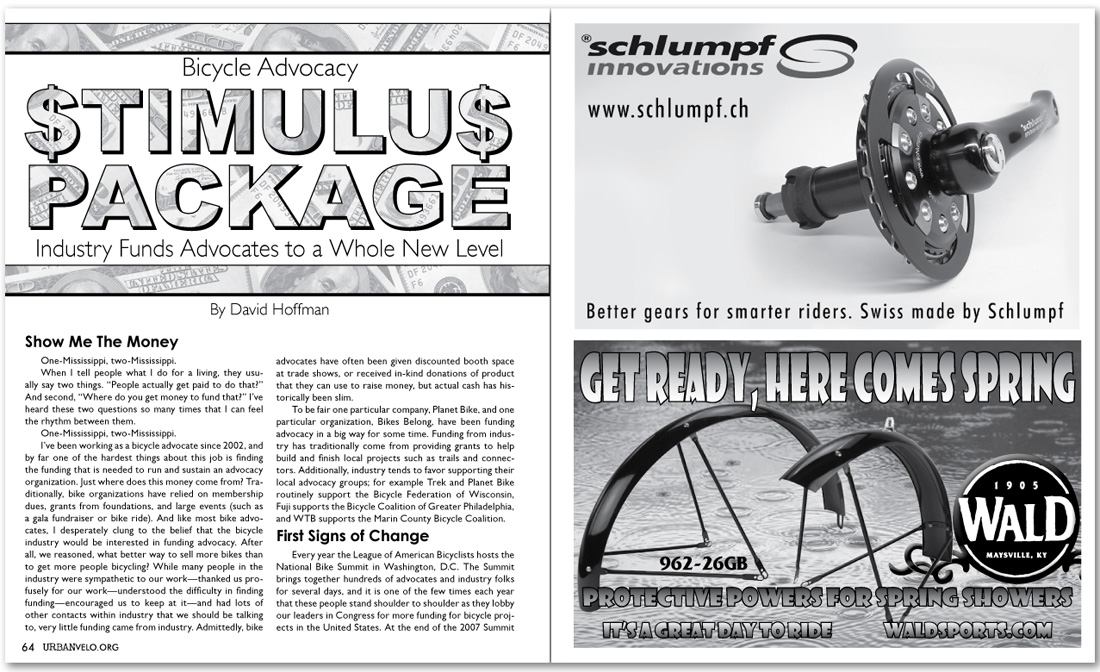| Bicycle Advocacy Stimulus Package
Industry Funds Advocates to a Whole New Level
By David Hoffman
Show Me The Money
One-Mississippi, two-Mississippi.
When I tell people what I do for a living, they usually say two things. “People actually get paid to do that?” And second, “Where do you get money to fund that?” I’ve heard these two questions so many times that I can feel the rhythm between them.
One-Mississippi, two-Mississippi.
I’ve been working as a bicycle advocate since 2002, and by far one of the hardest things about this job is finding the funding that is needed to run and sustain an advocacy organization. Just where does this money come from? Traditionally, bike organizations have relied on membership dues, grants from foundations, and large events (such as a gala fundraiser or bike ride). And like most bike advocates, I desperately clung to the belief that the bicycle industry would be interested in funding advocacy. After all, we reasoned, what better way to sell more bikes than to get more people bicycling? While many people in the industry were sympathetic to our work—thanked us profusely for our work—understood the difficulty in finding funding—encouraged us to keep at it—and had lots of other contacts within industry that we should be talking to, very little funding came from industry. Admittedly, bike advocates have often been given discounted booth space at trade shows, or received in-kind donations of product that they can use to raise money, but actual cash has historically been slim.
To be fair one particular company, Planet Bike, and one particular organization, Bikes Belong, have been funding advocacy in a big way for some time. Funding from industry has traditionally come from providing grants to help build and finish local projects such as trails and connectors. Additionally, industry tends to favor supporting their local advocacy groups; for example Trek and Planet Bike routinely support the Bicycle Federation of Wisconsin, Fuji supports the Bicycle Coalition of Greater Philadelphia, and WTB supports the Marin County Bicycle Coalition.
First Signs of Change
Every year the League of American Bicyclists hosts the National Bike Summit in Washington, D.C. The Summit brings together hundreds of advocates and industry folks for several days, and it is one of the few times each year that these people stand shoulder to shoulder as they lobby our leaders in Congress for more funding for bicycle projects in the United States. At the end of the 2007 Summit
continued |
|
|

